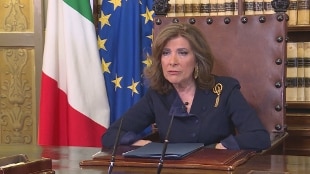Share
26 July 2020Pool of experts for reforms? "I disagree. The experts who are already 500 today have an important consultancy function, but parliament is the first, only and irreplaceable interlocutor of the government". The other member of the executive board is the President of the Senate Maria Elisabetta Casellati interviewed by Il Messaggero. On the extension of the state of emergency "the executive will finally listen to Parliament's opinion" after having "declared it in full solitude on 30 and 31 January last". On the school he asks "immediately certain rules" because "so we risk the catastrophe".The President of the Senate complains, from the columns of Il Messaggero that "Parliament has become invisible because it has been emptied of the legislative function attributed by the Constitution". While "Since the beginning of this term the government has proceeded with decrees, most of the times approved with votes of confidence and more and more frequently examined only by a Chamber". Casellati brings the example of the Relaunch decree "a real financial one of about 300 articles, on which the Senate has not 'touched the ball'".
His recipe for starting again after the health emergency "is that of the three Ls: work, liquidity, liberation from the oppression of tax and bureaucracy" he explains by observing that "Italians do not want means of assistance or emergency policies. From the sofa - he notes - nobody helps the country to get up again ".
On the working situation of women, he notes that "teleworking was certainly a useful tool during an emergency, but it cannot be the rule in the organization of work. Today everyone must go back to the office safely" in particular women "for them" Telework risks turning into a boomerang, because it drives them home and makes them marginal in the job market, making the hands of female emancipation go back 50 years. "On the Casellati school it is clear:" All students must return to class in September is a categorical imperative "but" there must be immediate certain and equal rules for everyone "and yet" responsibility cannot be discharged onto the principals. Thus we risk catastrophe, creating unacceptable inequality and discrimination between students of series A and series B. "

